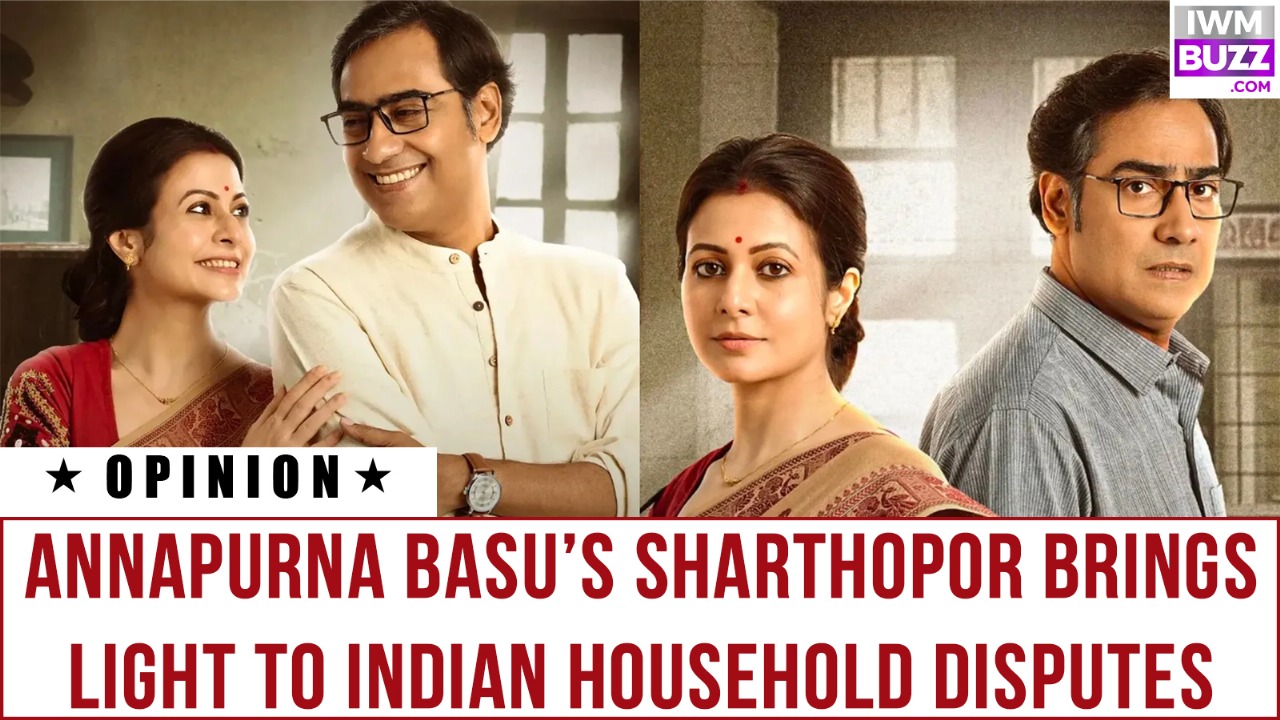The context of ‘Bangla cinema(r) pashe daran’ has been making quite the rounds, every now and then. But you see, one doesn’t need to advertise constantly, and beg people to stand by—if it’s worthy, the support comes in flow and remains organic. With Annapurna Basu’s Sharthopor, it’s what we can infer. The responses have been top-notch. The narrative fits very well in the Indian context.
Featuring Koel Mallick and Koushik Sen in the lead roles, the film explores the very intricate household disputes. Koel Mallick plays the role of Aparna Ghoshal, while Koushik Sen takes the role of Saurav Basu. We see the usual devotion that siblings hold for each other in India. But eventually, we see the fractures when Saurav decided to give a part of their ancestral home on lease. Aparna, who believes she has an equal share in the property, opposes his decision. This disagreement escalates into a legal dispute, and what begins as a property conflict slowly uncovers deeper emotional rifts — old insecurities, resentment, and feelings of being taken for granted.
Despite their conflict, the film shows that their love and connection as siblings endure, even though pain and misunderstanding.
It deeply explores the sibling relationships. We also witness how women like Aparna are sidelined in family decisions and inheritance. In India, it’s been a constant debate that once a woman gets married, she is almost left out of her own childhood premises.
We see Aparna undergo a metamorphosis after recognising her own self-worth. It’s about asserting her place and identity in a world where she feels overshadowed by the men around her.
You might feel it is a courtroom drama for a moment. But it is less of a courtroom drama and more of humane emotions and complexities that humans hold within their sentiments. It uses a family dispute as a mirror to show how relationships can fracture under pressure, yet still find a way back to understanding and forgiveness.
It’s a touching reflection on sibling love, ego, and emotional reconciliation, making it especially fitting for Bhai Phonta — a festival that celebrates the bond between brothers and sisters.

